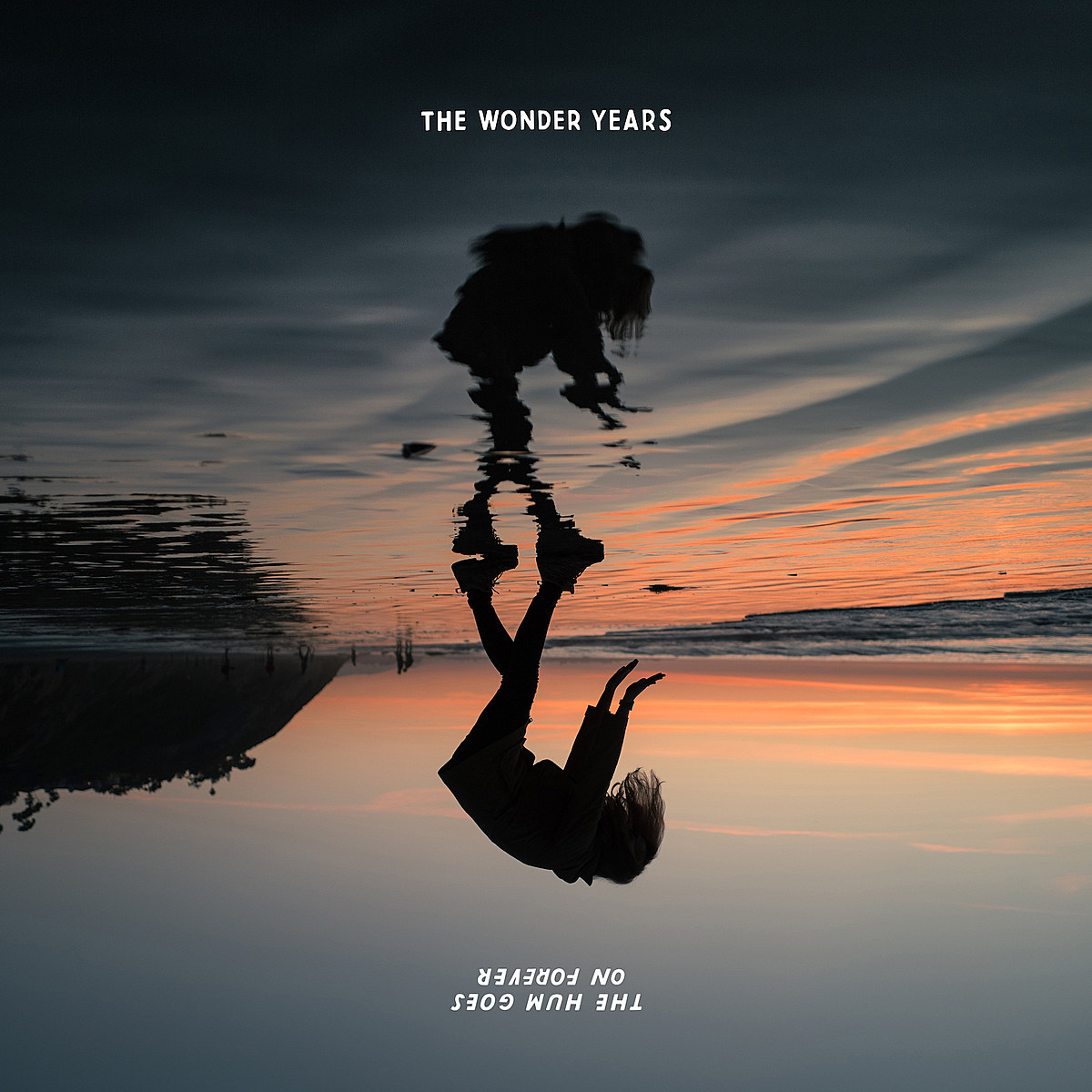The Wonder Years
The Hum Goes on Forever
HOPELESS/LONELIEST PLACE ON EARTH
ABOVE THE CURRENT
How do you care for someone else who needs you when you don’t feel capable, or even particularly interested, in caring for yourself? How do you cope in a world that feels like it’s ending in a new way every day? How do you survive being battered by storms of intense depression, much less learn to live with them as the low hum of sadness persists? These are the questions posed by Philadelphian six-piece The Wonder Years on their new record, which takes its title from a poem found in the booklet of their previous record, 2018’s Sister Cities. But it would be wrong to say The Hum Goes On Forever picks up where its predecessor left off.
As before, it's Dan Campbell, Casey Cavaliere, Matt Brasch, Josh Martin, Nick Steinborn, and Mike Kennedy against the world. It’s been like this since 2009, and making the same lineup work this well for 13 years and six albums is no easy feat. They’ve made sure to progress with each of those records, initially branching out from pop-punk after delivering The Greatest Generation in 2013, a contender for their scene’s finest hour. They’ve never been ones for escapism, preferring instead a realism that has, in recent years, been pockmarked by loss and grief.
“These small memorials that I hold nightly out in front of everyone / I sing them songs about death, and they sing along / It’s gotta stop,” Campbell sings on “Songs About Death,” one of several songs on Hum where lyrical intensity is matched by the music; tension builds before a bruising three-guitar attack bursts in by way of a chorus. The song doesn’t need one—it’s among the heaviest Wonder Years material to date as is. “Old Friends Like Lost Teeth” is another song about death, Campbell haunted by memories of those he’s lost. It shows up three songs later in a darkly humorous bit of sequencing.
The flipside of this is the album’s primary lyrical narrative, referenced earlier: more specifically, Campbell became a father, and new life influenced the record as much as anything else. This happened in late 2019; fast-forward six months and his ongoing adjustment to a new lifestyle was disrupted by a pandemic, forcing the band off the road to boot. It’s no wonder opener “Doors I Painted Shut” finds him brought low by exacerbated postpartum depression: “I don’t wanna die, but I’m petrified of getting up.”
In tandem with this, there was the anxiety brought on by parenthood, captured by lead single “Wyatt’s Song (Your Name).” Simultaneously joyful and pensive, it sets Campbell’s ebullience against the pervasive fear of failing to protect his son: “I’ve never been so afraid of failing at anything / And I’m glad you don’t know how bad it is,” he admits on the song’s extended bridge, Kennedy’s powerful drumming adding some extra punch to a song that already carries considerable emotional weight.
It's a sequel of sorts to “Passing Through a Screen Door,” a song on which Campbell wondered if he was on the right path in life—acting as an update a near-decade later. There’s also an actual sequel on the tracklist, and it’s a crusher: “Cardinals II” expands upon its genesis from 2015’s No Closer to Heaven, repurposing choice musical elements in a much heavier context—and that’s before we even get to the lyrics. The need to protect those you love is dwarfed by the realization that they’ll get hurt regardless. “We’re no saviors if we can’t save our brothers,” the band sang back then; this time, the difference is stark, as that idea hits home in a familial context. “I can’t protect you / I had my chance and I fucked it up.”
Elsewhere, “The Paris of Nowhere” is a hook-laden love letter to Philly itself, “The black lung of the East Coast / Desperate, kind, and cutthroat.” It deserves to be known as one of the essential Wonder Years songs for a variety of reasons (callbacks, vocal interplay, an absolute slam dunk of a chorus), and feels like it could have slotted in on Suburbia I’ve Given You All and Now I’m Nothing" with no fuss—2011 through the lens of 2022. On the more vulnerable end of things, “Low Tide” puts the focus back on Campbell’s depression and gives it an early-pandemic framing as he tries to stave off feeling completely overwhelmed.
It's the second in a self-contained trilogy of sorts. On one end you’ve got the melancholy of “Doors I Painted Shut,” and at the other is album closer “You’re the Reason I Don’t Want the World to End.” Acceptance in the face of calamity; momentary mental peace; getting the dosage right. Visions of domestic bliss contrast sharply with terror and environmental disaster: “I’m scared to my bones that I won’t find a way to keep you and your brother safe.” Whether it's grief, wildfires, or gun violence, life finds a way to cause everyone pain. Campbell sees this, and is learning to live with it the best he can, a feeling captured in a song that goes stratospheric as “Doors I Painted Shut” is folded back into its closing salvo: “I don’t wanna die, ’cause I’ve gotta protect you.”
The Hum Goes on Forever is a rallying cry for the bruised, the broken, the beleaguered, battered by internal or external storms. The Wonder Years can’t provide you with the answers, but damn if they don’t try, closing the record with sage advice: “Put the work in, plant a garden, try to stay afloat.” They’re still working things out themselves, and in doing so, they may well have made their masterpiece.







